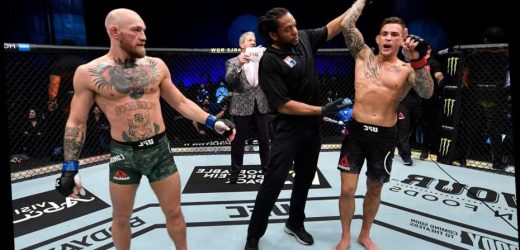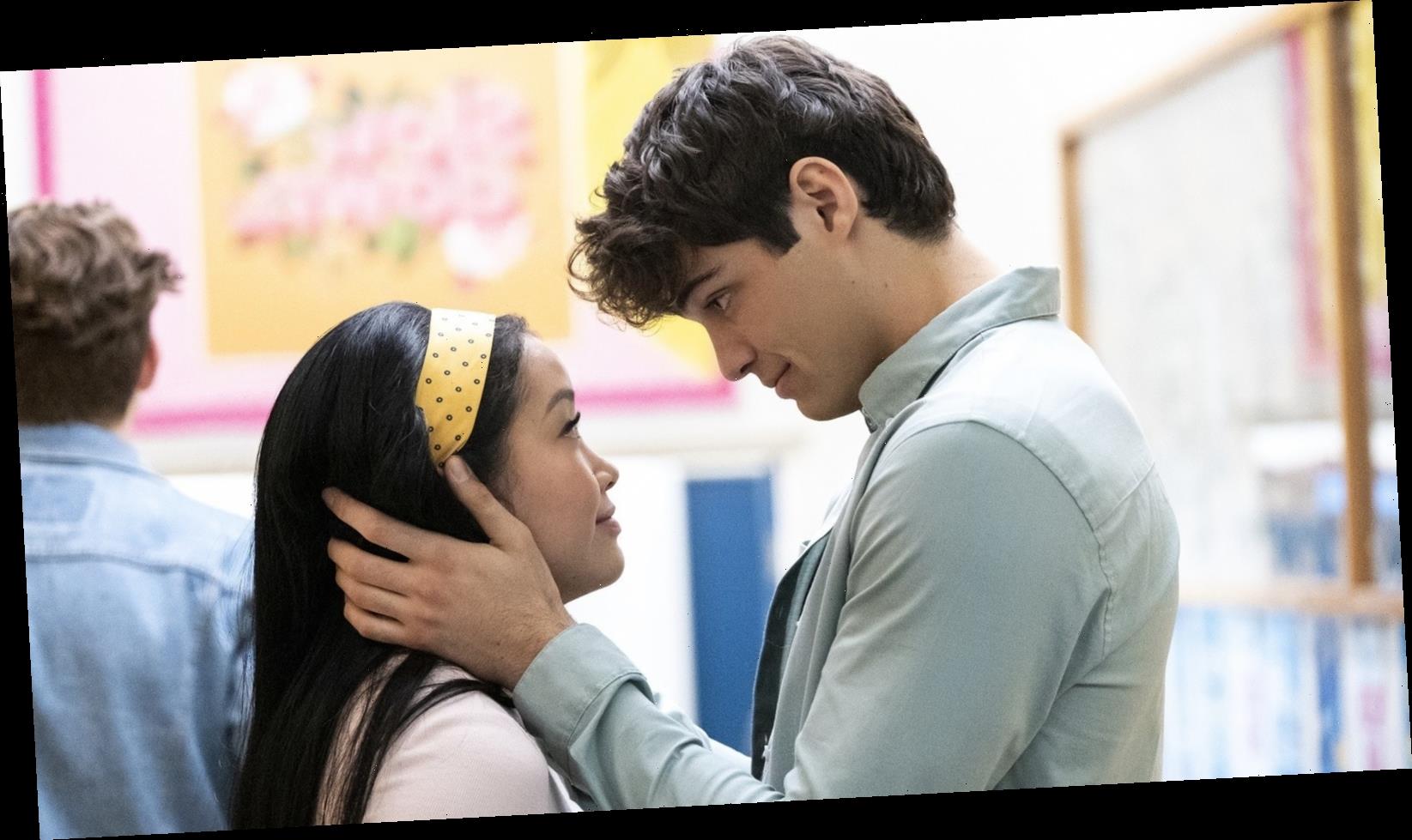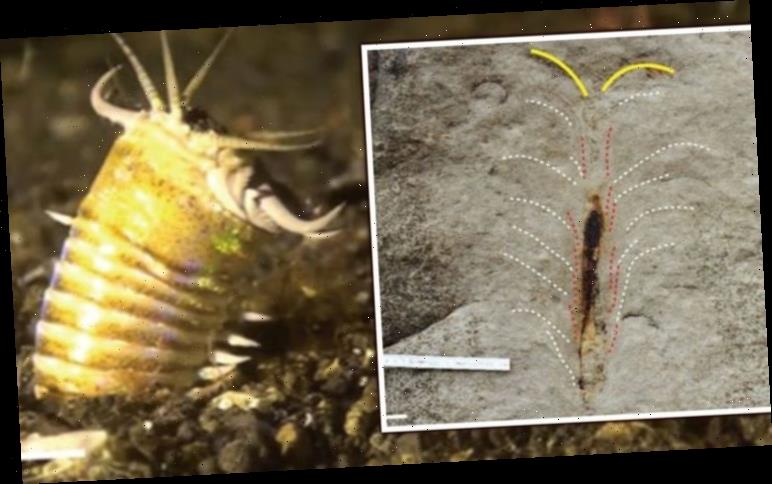As I sit on a 16-hour chartered flight home from Abu Dhabi to Las Vegas, it’s still somewhat surreal to think what unfolded on Saturday night. Conor McGregor was knocked out by Dustin Poirier mere feet in front of me in the UFC 257 main event. It’s not that Poirier winning was some sort of unfathomable scenario. (In fact, I picked him to beat McGregor — albeit not quite like that.) The greater shock was the scene around it all, and the process I endured to be there cageside to see a megastar fall.
It wasn’t too long ago when McGregor — who is unquestionably one of the most well known sports figures in the world — was boxing Floyd Mayweather in front of a sold-out T-Mobile Arena, or competing in one of his many UFC main events with a packed crowd in attendance. The coronavirus pandemic changed the world as we know it, and this McGregor fight — as well as the circumstances around it — differed from all others.
The Irish superstar’s first mixed martial arts contest in more than a year went down over the weekend on “UFC Fight Island,” and it may have been impossible not to hear something about it over the past eight months. UFC president Dana White originally made it seem like some sort of Mortal Kombat-style environment with fights unfolding on the beachfront surrounded by tiki torches.
White’s promotional flair was intended to let imaginations run wild when he declared back in June that he’d “secured an island” — which was really just Yas Island in Abu Dhabi, hardly some exotic destination. This venture to “Fight Island” was UFC’s third since it was forced to find a forum for fights outside Las Vegas in order to fulfill contractual obligations to its global list of athletes, some of which can’t enter the United States under current conditions. The first run went down in July, while the second concluded in October. What made the third iteration different, however, was the inclusion of three events over a seven-day span, all wrapping up with McGregor’s anticipated return to the octagon for a rematch with Poirier, who he beat in less than two minutes back in September 2014.
Poirier Vs. McGregor 2 was the 35th and final fight over the three-event stretch, and it was a hell of a journey just to get there and watch it in person as a credentialed media member. The possibility of visiting “Fight Island” was something that didn’t come across my desk until late December. The opportunity to cover a live sporting event for the first time since March had me giddy, but I had reservations about traveling to the other side of the globe during such a sensitive and potentially dangerous time.
Mike Bohn
After some initial pause, any concerns were quickly alleviated as information on UFC’s health and safety protocols became available. Among them were a mandatory negative Covid-19 result before leaving for Las Vegas, a 36-hour quarantine in a UFC-monitored hotel in “Sin City,” as well as another negative result during that quarantine. All of that was required just to receive clearance to get on the chartered plane with Etihad Airlines along with others traveling to the event, who all experienced the same precautions.
Following approximately 15 hours of flight time to the Middle East (where the complimentary drinks were maximized) and clearing customs, we were immediately swept up on shuttles and taken into the designated safe zone, or a “bubble,” if you will. Unlike previous trips to the location, though, this safe zone was miniscule. The re-opening of Abu Dhabi meant the freedom enjoyed on past trips, from riding Sea-Doos to hitting the beach or just walking around, no longer existed. The only place to go was between the media hotel, the fighter hotel and Etihad Arena, which hosted the fights.
First, though, a mandatory 48-hour quarantine in my hotel room at the Crowne Plaza on Yas Island. Two negative Covid-19 test results had to be turned in before receiving a wristband confirming my freedom, and that certainly wasn’t easy. The first four jet-lagged hours were agonizing as time blended together. The only true measure of time was the breakfast, lunch, and dinner meals dropped on my doorstep throughout the day. At the end, I exited with a wristband to validate being coronavirus-free. Every single hotel employee, member of security personnel, shuttle drivers and more quarantined for two weeks before anyone arrived on “Fight Island” to ensure no traces of the virus made its way inside the “safe zone.”
Once liberty was granted, it definitely felt like a special situation, mainly because of the slice of normalcy.:Mask-wearing and social distancing practices remained intact throughout the safe zone, with brief exceptions. The fact everyone had quarantined and been repeatedly tested, allowed a return of in-person interviews with athletes, which is among my favorite aspects of being a sports reporter.
Fun wasn’t had by all: The W Hotel where all the fighters stayed is located directly adjacent to the Abu Dhabi Formula 1 race track. That was cool at first, but for fighters trying to work on a delicate sleep schedule, the almost daily sounds of cars humming was agonizing.
“You call this ‘Fight Island,’ but this is ‘Fight Hotel,’” Poirier said of the setup. “You couldn’t leave the property. I’m sitting for two weeks cutting weight. The furthest I can go is to the workout room. This was like I was in a prison of my own mind. (The race cars) drove me f*cking nuts. … I’m sitting there like, ‘I’m about to jump off the balcony.’” Poirier made the sacrifices to do his part in keeping the safe zone legitimate and was obliged to the same requirements as everyone else, which meant additional testing every three days after being released from the 48-hour quarantine.
Not everyone was considerate of the rules, though. As we approached UFC 257, the final of the three “Fight Island” events, an incredible story emerged about Moroccan fighter Ottman Azaitar. UFC officials revealed Azaitar had been ejected from the safe zone after cutting off his wristband and passing it off to an unapproved person, who then accessed the safe zone hotel room, only to shimmy over four stories of balconies to pass off a bag (of unknown contents) to the fighter. Dana White recounted the story, and it’s absolutely ridiculous.
There’s no evidence the situation had any coronavirus-related consequences for anyone inside the safe zone, although his actions could have compromised the event despite all the precautions. It did cost him his career, though, because White cut him from the roster for such a foolish decision.
That brought us to UFC 257. McGregor had arrived the Monday of fight week on a luxury super-yacht that he took from Dubai with his team. We know “The Notorious” always likes to go big, but that’s largely where the similarities to the McGregor of old stopped. Part of what brought McGregor’s star power to an unmatched high was his erratic behavior, ruthless trash talk, and lethal fighting ability. He dominated Poirier with his words prior to their first fight, twisting him up into a pretzel before they even stepped in the cage.
The scene for the rematch was different in more ways than one. Since becoming a father of two — with his fiancée Dee Devlin, who is pregnant with their third child — has caused McGregor to mature, at least in the public eye. He committed to donating $500,000 to Poirier’s charity, The Good Fight Foundation, before the bout, and the pair were nothing but cordial and respectful during each interaction. Poirier showed no respect once they got in the cage, though.
The original plan called for no fans to be in attendance for UFC 257. The promotion’s partners in Abu Dhabi forced White’s hand into a last-minute change, and opened the doors of the freshly built Etihad Arena to approximately 2,000 fans. It was the first series of events in the venue’s history.
When McGregor walked out to the cage at roughly 9:35 a.m. local time in Abu Dhabi, those 2,000 sounded like 20,000. After Poirier spent roughly eight minutes punishing his legs with brutal kicks, he went upstairs with a blistering combination to knock McGregor out for the first time in his UFC career. At that point, the pro-McGregor crowd of 2,000 sounded like roughly 20.
The knockout happened right in front of me on press row, and nearly took my breath away. It was overwhelming to be one of the few in this world to see such an iconic figure go down like that in person.
Plenty around the world witnessed it through the broadcast, however. According to some sources, the card did a minimum of 1.6 million buys on ESPN+ play-per-view, with the global figure likely to climb over 2 million. That would make it the second largest pay-per-view number in UFC history, only behind McGregor’s loss to Khabib Nurmagomedov at UFC 228 in October 2018.
Faltering on such a grand stage comes with backlash, and McGregor has become the target of fellow fighters, former adversaries and internet memesters in the hours since he was dropped and stopped. McGregor didn’t look like the man who took the fight game by storm in the mid-2010s, but that’s partially because Poirier is a beast in his own right, and deserves respect for his win.
McGregor, to his credit, handled the loss with class. He limped his way into the post-fight press conference and spent more than 20 minutes answering questions from the media.
“It’s heartbreaking,” McGregor said to reporters post-fight. “It’s hard to take. The highest highs and the lowest lows in this game. I have no excuses here. It was a phenomenal performance by Dustin. I don’t know what to say. … Hats off. [I’ll] regroup and pick myself up. I look forward to going back now and seeing the kids and just taking the licks.”
If that’s not the definition of class, then I don’t know what is. But that’s McGregor. For better or worse, he’s always taken his defeats with grace. White, who was far from enthusiastic post-fight, thinks McGregor is at a crossroads with this loss.
“He’s got the money. When you think about it, I’m a huge Rocky fan. This feels like Rocky III,” White says. “When you get off a 310-foot yacht, you know what I mean? You’re living that good life. It’s tough to be a savage when you’re living like he lives and has the money like he has. On his way up, he was a young, hungry kid, and he didn’t have any money and he wanted nice things. He wanted nice suits, nice cars, nice houses. He has everything he ever wanted.”
Poirier, meanwhile, would happily oblige to McGregor’s hope to redeem himself, should he want it. Sources tell me there was a McGregor trilogy-fight clause in his contract going into UFC 257, with much more lucrative financial perks attached to it.
https://www.instagram.com/p/CKa20bVJzlf/
A post shared by Mike Bohn (@mikebohnmma)
Ultimately, though, Poirier just wants to partake in the biggest stuff the sport has to offer. A trilogy with McGregor would certainly be that, but his ultimate goal is to be UFC lightweight champion.
“A rematch with Conor interests me,” Poirier says. “I feel like I’ve done it all, except, I feel like I can’t say I walked away, and I’m the champ, you know,” Poirier said. “I want to be the champ. When you’re the champ, you’re the champ forever, and I want to be the champ. But yeah, I’ve seen the highest of the highs and the lowest of the lows in this sport.”
And with those closing comments came the end of a 15-day run on “Fight Island.” Media left the arena at roughly noon local time, mostly in a state of delirium of what we’d just witnessed and put exhaustion from a card that began at 4 a.m. earlier that morning.
From there, we returned to the hotel, packed our bags and whisked off to the airport to return back on the chartered with fighters, managers, cornermen, UFC staff and fellow media members – all of whom again tested negative for COVID-19 prior to departure.
The 15 hour and 50 minute flight back to Las Vegas has not been the most enjoyable, but trekking across the globe made it more than worthwhile as I sit here reflecting on what a treat it was being among the handful of media approved to cover an unparalleled sporting experience at a rather dark time in our world.
Source: Read Full Article



